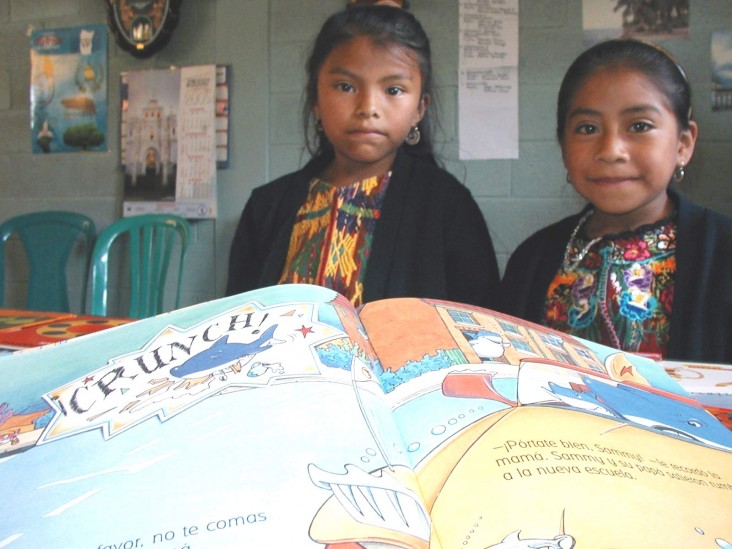
Not for Guatemala's rural children. Although like all children they love books, they have none in their homes or schools, and there are no community libraries.
"Have you felt incapable of learning?" asks Roberto Moreno, rector of Del Valle University of Guatemala. "This sensation is part of daily life for thousands of Guatemalans and of many of our children when they first go to school.... Being able to read and write contributes to our quality of life and to strengthening of democracy in our society."
A well-rounded collection of books is a critical resource for improving reading skills - and one that teachers, parents and children have welcomed with open arms and eyes. Books also help children in their pursuit of answers to questions about themselves and the world around them. A child seeing a map for the first time truly experiences a new world.
USAID understands the need for books and is working with the Ministry of Education to provide six of Guatemala's poorest states with classroom libraries. Each library contains more than 100 children's titles, and by 2006, an estimated 15,000 teachers and 500,000 students in 1,000 primary schools will have access to them. Results from a national standardized test show that USAID efforts had a strong effect on student reading: 65 percent of participating first grade students met the evaluation criteria versus 46 percent of non-participants. There remains an even greater need for improved instruction in math.
These classroom libraries are part of an intensive USAID effort to revamp traditional educational methodologies and teaching tools. USAID works with teachers and local school administrators to adopt classroom teaching methodologies that enhance learning, especially reading and writing skills. In the short term, this improvement will help children move successfully from one grade to the next; in the long term, it will help lower Guatemala's precipitously high levels of illiteracy that are particularly acute among rural indigenous people, who have historically been marginalized from the education system.







Comment
Make a general inquiry or suggest an improvement.